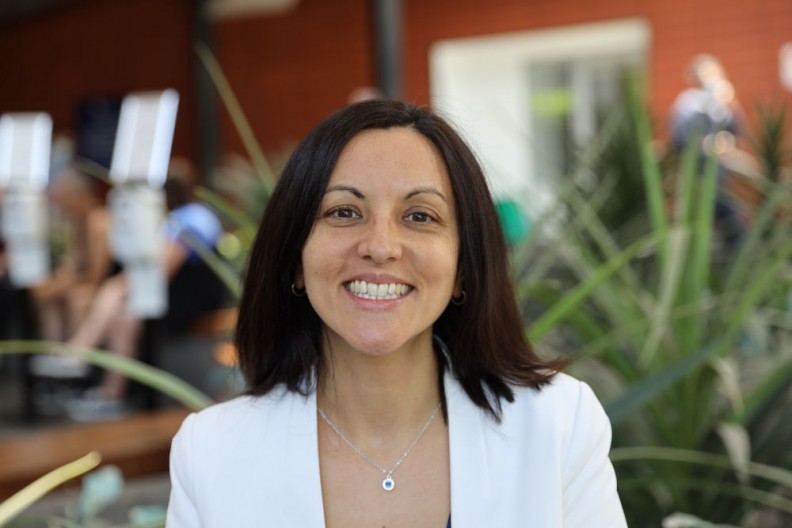
Heading up this Melbourne-led project is Associate Professor Natasha Smallwood, recipient of the inaugural Victorian’s At Life’s End (VALE) Post-Doctoral Fellowship offered by Windermere – a charitable foundation committed to advancing health and wellbeing in Victoria.
Following a competitive selection process, the $450,000 study grant was presented to the Centre for Palliative Care to help support A/Prof Smallwood’s clinical research around improving breathlessness in people with chronic lung disease.
“All the research to date shows this group of patients don’t get adequate symptom control, don’t access palliative care and have unmet needs in terms of information communication and care, both for themselves and their families,” says A/Prof Smallwood, a consultant respiratory physician at the Royal Melbourne Hospital and a principal research fellow at University of Melbourne.
She believes her research will also assist patients with advanced heart disease who are suffering from breathlessness.
Prof Hudson, Director of The Centre for Palliative Care (a division of St Vincent’s Hospital Melbourne and a collaborative centre of the University of Melbourne) considers the project particularly worthy because it offers a unique and valuable area of focus that serves to benefit a group of very vulnerable people.
The grant will allow multi-disciplinary research to be conducted, aimed at developing, implementing and evaluating new clinical practices, models of care and interventions to improve quality of life for Victorians in their last two years.
“This is a really exciting opportunity for the field of palliative care and increases the prospects for research,” says Prof Hudson, who is supervising the project work with Prof Jennifer Phillip, Chair of Palliative Medicine at St Vincent’s Hospital Melbourne and the University of Melbourne.
Song therapy
Implementing a Singing for Breathing program is one concept A/Prof Smallwood hopes to trial in Australia as part of this post-doctoral research. The strategy focuses on using singing as a technique to improve breathing in palliative care patients with severe lung disease and advanced heart disease.
“The reason singing can be helpful is because you can use it to teach people quite good breathing control and exercises to manage breathlessness,” A/Prof Smallwood explains.
“It’s something they can easily do with their carer as well, and is quite a joyful and uplifting activity that can help people when they’ve got anxiety and depression as a consequence of suffering from a chronic disease.”
Although the program is actively used in the UK, no large randomised controlled trials have been done on the benefits for patients experiencing breathlessness towards end of life.
The trial will be modified to accommodate COVID-19 conditions and will eventually be conducted through telehealth.
Boosting care needs
A/Prof Smallwood says the Windermere Foundation VALE Post-Doctoral Fellowship provides a chance to expand on her previous work around breathlessness, severe chronic lung disease and palliative care.
“It will add to the body of evidence around how we provide better models of care for people with severe lung disease,” she explains.
According to A/Prof Smallwood patients with conditions including chronic obstructive pulmonary disease (COPD) or interstitial pulmonary fibrosis have the same symptom burden as patients with lung cancer, but they will experience these symptoms for much longer and very rarely access any symptom management or palliative care in the last few years of their life.
Through this post-doctoral fellowship, she will be conducting qualitative research with patients who are nearing end of life, as well as their caregivers and clinicians’ experiences.
“We’ll be looking into things like why symptom palliation with opioids are not regularly used,” A/Prof Smallwood says.
“The needs of these patients are clearly not being met, which makes it an area of increasing research interest.”
Another area of focus will involve investigating barriers faced by these patients that may prevent them from seeking psychological support and treatment.
A/Prof Smallwood says it’s well-recognised that anxiety and depression are very common in people with many chronic diseases.
“Part of my research will look at why some people won’t accept psychological support when it’s offered. Is it because we’re offering the wrong support, and how do we individualise it to this particular patient group?” she adds.
“What we want to try and do is improve the quality of life in those last couple of years where there actually is the greatest suffering.”

